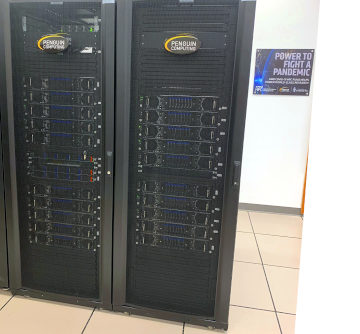Niagara at Scale – Oct 2021
September 12, 2021 in for_press, for_researchers, for_users, news
SciNet held a successful event “Niagara at Scale” in the Spring of 2021, during which Niagara was reserved for 48 hours for large parallel computations on the order of the size of the cluster. Such “heroic computations” are Niagara’s mandate, but they are hard to run within the regular batch scheduler.
Because of further demand for such large computations, another “Niagara at Scale” event will be held for two days in October 2021. Exact dates will be announced in the near future.
Purpose of “Niagara at Scale”
These events enable pre-approved projects that require all or nearly all of the capacity of the Niagara supercomputer at once. Such heroic computations are Niagara’s mandate, as it is the “Large Parallel cluster within the national systems of the Compute Canada Federation, and the fastest machine of its kind in Canada according to the TOP500 List. But computations of this size — think massively parallel codes running on tens of thousands of cores — are hard or impossible to run within the regular batch scheduler.
How to apply
Announcements of this event went out to Niagara users on August 16, 2021, with an application deadline of September 7. The selection of participants is currently being made.
Future events
There will be more Niagara at Scales events in the future. If you are a Niagara user that has massively parallel jobs or workflows that could take advantage of this opportunity, keep an eye out for future announcements.












